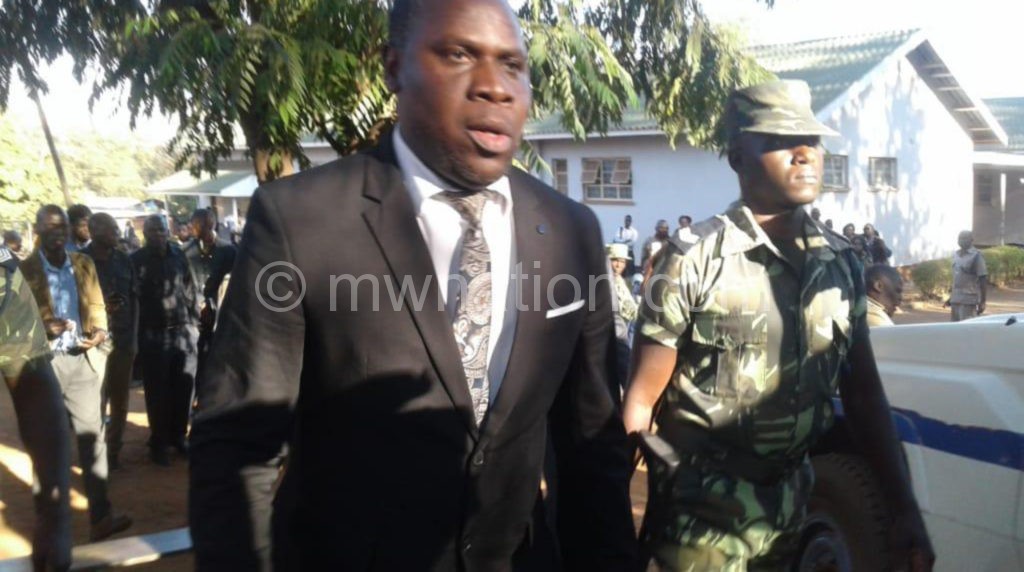UN council queries activists’ arrests
The United Nations Human Rights Council has demanded an explanation from the Malawi Government on harassment of human rights defenders in the aftermath of the disputed May 21 presidential election results.
In a highly–guarded communication to government, the Geneva -based Human Rights Council, which commands global influence, has singled out the recent arrest of activists—Gift Trapence and Macdonald Sembereka—and continued threats to others; Timothy Mtambo, Charles Kajoloweka and Madalitso Banda, who is Human Rights Defenders Coalition (HRDC) leader for the Eastern Region.

Sources say, in the letter, the UN has expressed deep concern with threats targeted at rights activists, asking the government of Malawi to ensure safety and security of human rights defenders (HRDs). It cites allegations of death threats as a serious human rights concern.
According to well-placed sources in government, the communication from UN was received early this week through the Ministry of Foreign Affairs and International Cooperation to the Ministry of Justice and Constitutional Affairs which is currently working on a response to be dispatched within the week.
Meanwhile, the Ministry of Justice and Constitutional Affairs has confirmed, to Nation on Sunday, receiving communication from Geneva and that they are working on a response.

The ministry’s spokesperson Pilirani Masanjala said the ministry is working with relevant stakeholders to respond to the letter.
“The Ministry of Justice and Constitutional Affairs’ human rights section is coordinating Malawi’s response to the issues raised. In this regard, the Ministry of Justice is working together with the Ministry of Foreign Affairs and International Cooperation and the Malawi Police Service on this matter. The response will be frank and factual,” said Masanjala.
Over three weeks ago, the UN Human Rights Council also summoned Malawian ambassador in Geneva, to explain the human rights situation in the country following the arrest of the Trapence and Sembereka.
One Malawian diplomat familiar with the issue faulted the police for arresting the two activists, describing it as a ‘diplomatic blunder’.
“The police was ill-advised. The arrest was unnecessary because under the Immunity and Privileges Act, which is a domestication of the Vienna Convention, diplomatic institutions and, indeed, diplomats, have immunity; they cannot appear in court either as defendants or witnesses. So, UNAids cannot go to court to testify and that makes the police case unachievable,” said the source.
The source further said government is under pressure to respond to the UN; otherwise, if it does not do so, it may be sanctioned, and failure to do so may lead to other punitive measures.
But Masanjala said this is not the first time the UN has demanded an explanation from government on human rights issues, adding that they will continue to engage the global body.
The Human Rights Council, is an intergovernmental body, within the UN system, responsible for promotion and protection of human rights around the globe. It was established by the UN General Assembly to which Malawi is a member, in 2006.
In a related development, two days ago, the Southern African Litigation Centre released a petition, signed by local and international human rights groups, expressing concern with recent threats against human rights defenders (HRDs), especially death threats against Mtambo, who is HRDC chairperson.
The statement, dated August 2 2019, is calling on the government of Malawi to investigate such threats.
“We condemn in strongest terms any threats to the safety of HRDs on account of their human rights work and call on the international community to closely monitor the situation in Malawi with respect to the vulnerability and protection of HRDs. We further call on the government of Malawi to respect their international obligations and commit to ensuring that HRDs are able to operate safely,” reads the statement in part.





